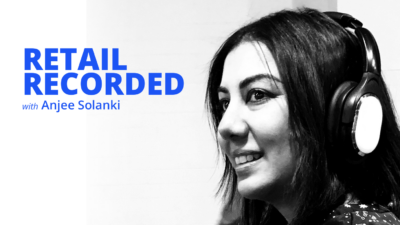Do you love to trot away those calories on the treadmill? Bounce along to Beyoncé as you scale steep hills on a stationary cycle?
You might even be wearing an athleisure ensemble with items from Beyoncé’s own fashion line.
If you’re like many gym-goers, exercise isn’t just a hobby—it’s a lifestyle. And these days, there are many ways to define your identity with fitness and an active life.
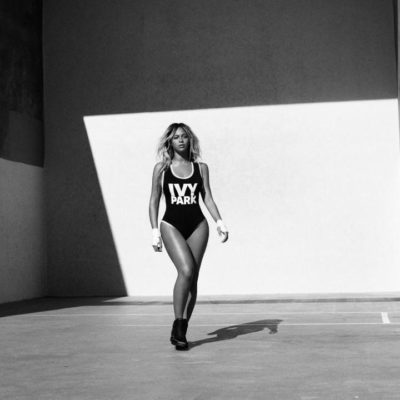
Beyoncé sporting apparel from her new fitness line, Ivy park. Image courtesy of The Telegraph.
A new book by Jason Kelly, New York bureau chief for Bloomberg, caught my attention. In Sweat Equity: Inside the New Economy of Mind and Body, Kelly takes an in-depth look at the stunning growth of the fitness industry, which has reached a tipping point. The industry is now worth $3.4 trillion in the U.S., and it’s still growing. The fitness lifestyle now influences where people go, what they eat, who they hang out with, and what they wear. In other words, your fitness activities are no longer about the things you do; they are beginning to define who you are.
As evidence, Kelly points to the recent sale of the Ironman triathlon brand for nearly $1 billion, an illustration that companies in the industry are “growing up, taking on investors, getting sold, and going public.”
It’s the lifestyle brand on steroids.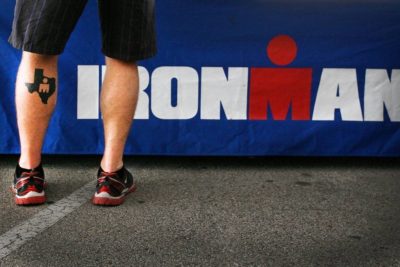
Ironman brand. Image Courtesy of WSJ.
I’ve written before about the rise of the lifestyle brand. As consumers become increasingly sophisticated about managing their brand relationships, savvy brands are moving beyond simply touting functional attributes of their products and services. They are also delivering what millennials (defined as those who were born between 1981 and 1997) seem to want most: experiences. Why? It’s partly because they entered the job market when the economy tanked, and therefore are more careful with their money; and also because they like to show what they are doing, rather than what they bought, on social media sites like Snapchat, Facebook, and Instagram.
Brands are leveraging omnichannel marketing to deliver value by creating online communities and becoming ingrained in consumers’ everyday lives. Millennials, more than anything else, crave authenticity, a connection to people rather than a brand for its own sake. Brands, instead of turning the focus on themselves, are adopting their consumers’ stories to deepen engagement with the product. Savvy brands are making their customers part of the brand story.
‘the new church’
Kelly writes that fitness has so taken over our lives—and millennial lives in particular—that it’s even becoming an alternative to church. Fitness satisfies the desire for togetherness and the need for deeper connection. As more and more Americans turn away from religion, they’re turning to fitness to fill the void.
We expect yoga to include a dose of meditation, but other, more standard fitness activities, like stationary biking, are also focusing on mindfulness and spiritualty. Take SoulCycle, for example. For $30, you receive a 45-minute workout along with such “deep intangibles” as “joy, strength, and inspiration,” according to SoulCycle co-founder Elizabeth Cutler.
A visit to a SoulCycle class blends the gentle, inspirational aspects of a spiritual retreat (candlelight and aromatherapy) with elements of a spinning class (high-energy pedaling and weightlifting set to thumping music). SoulCycle mantras (“we aspire to inspire”) and athlete fantasy titles, “warrior,” “legend” and “rock star,” emblazon the walls and merchandise. It’s an addictive experience that keeps people coming back for more.
Cutler and other boutique fitness entrepreneurs are cashing in on something researchers have known for years: Regular exercise helps you focus and think clearly. Anyone who’s experienced a “runner’s high” understands the uplifting experience exercise can deliver, and group exercise classes—led by motivational instructors with “godlike followings,”—could very well be life-changing, and possibly more invigorating than sitting in a church pew.
Booming Boutiques
SoulCycle, with nearly $100 million in revenue in 2015, is leading the pack and currently exploring the idea of going public. But they’re not alone. Boutique fitness studios are popping up everywhere. Research from the International Health, Racquet & Sportsclub Association shows that nearly 20 percent of Americans are health-club members, and 42 percent of those are members of boutique fitness studios. The fitness industry grew by 7.4 percent in 2014, and much of that growth came from boutique studios. Women are driving much of this growth.
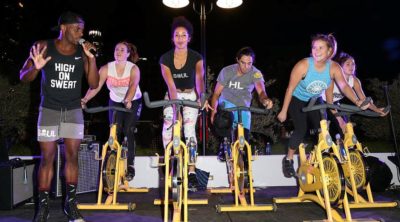
SoulCylers get their inner “rock star” on. Image courtesy of Marketplace.
Small studios are outpacing traditional, large gyms. Unlike traditional health clubs, boutique fitness brands such as SoulCycle, Flywheel, CycleBar, and many others, require less than 20,000 square feet; independent studios are also used for Pilates, kickboxing, indoor rock climbing, self-defense training, and dance instruction.
Boutique fitness studios, with smaller footprints than traditional gyms, are a perfect fit for neighborhood commercial corridors in urban communities, and they’re also a shot in the arm for ailing shopping malls.
With traditional department stores and big-box retailers struggling to survive, landlords are now redeveloping anchor space to accommodate smaller, more productive tenants. Boutique fitness studios, athleisure brands, and sporting goods stores lure experience-seeking millennials and increase foot traffic with their lifestyle appeal.
Landlords who don’t adapt to these market changes may lose out on opportunities to work with popular brands whose excitement draws foot traffic both to the younger brands and to more established brands in the vicinity.
Workout clothes have grown up
The growth of athleisure is another indicator of the flourishing fitness lifestyle industry. In case you missed it, “athleisure” has become so trendy that it recently made its way into the Merriam-Webster dictionary, defined as “casual clothing designed to be worn for exercising and general use.” This category of retail is quickly approaching the $100 billion mark.
Athleisure is popular among active young adults and reflects a more casual workplace. Comfortable, versatile, stylish athleisure clothes are also symbols of the active lifestyle trend that has been growing for years. Athleisure helps to define people as members of the fitness-lifestyle tribe. They feel a sense of belonging and create a social life around shared activities.
The growth of athleisure has been a shot in the arm for the apparel industry. Everyone is getting into the game. Louis Vuitton, Gap, Tory Burch, Nordstrom and H&M have all launched athleisure lines. Even Victoria’s Secret is rushing to catch up. Growth slowed for the Victoria’s Secret’s traditional padded bras, so the company is creating more space for sports bras, and it recently introduced a collection of unpadded bralettes, which are more in line with the lifestyle of modern-day consumers.
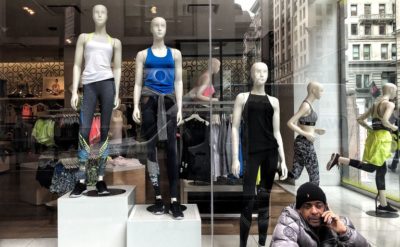
Gap gets in on the athleisure action. Image courtesy of NYT.com.
But not all athleisure brands are equal. Here again, the measure of success is based on how adept the brand is at affirming the consumer’s lifestyle and building a community into the brand.
Brands like Nike, Under Armour, and Luluemon are flourishing with active offline and online communities that participate in volunteer activities, free fitness classes and social movements. Beyoncé’s new athleisure line, Ivy Park, quickly became Nordstrom’s top selling brand online thanks to Beyoncé’s celebrity and devoted fan base.
Urban Outfitters and Theory, on the other hand, pulled back on their athleisure lines. As the market becomes more and more saturated, athleisure lines that lack a built-in tribe are likely to fail as well.
Lifestyle branding is the key.
Anjee continues to be an insatiable collector of all things retail. She’s a student of culture living next door to future shoppers, whose fleeting trends constantly change the retail landscape … driving retailers, landlords and developers crazy!

 Anjee Solanki
Anjee Solanki

 Nicole Larson
Nicole Larson